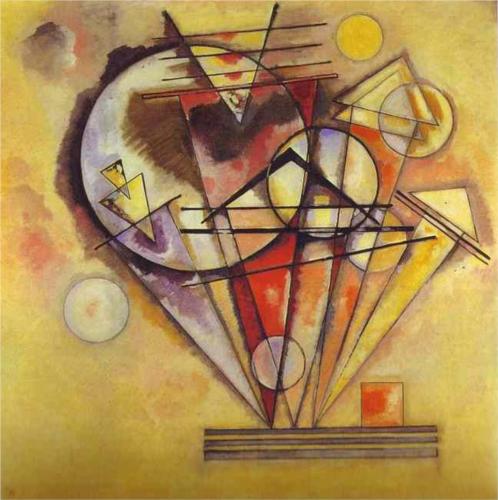
Rigor is the art and practice of remaining fixed on a method or a way of doing things. In politics, it means staying on message. In art, it means adhering to the core principles of that art. In science it means disciplined adherence to scientific method, without taking shortcuts. In team sports, it means executing the game plan.
The essence of genius is the ability to contribute to the whole by departing from established methods: to see what no one else has seen and act on it. Yet it is the genius’ mastery of the discipline that allows her to see beyond it. For example, Einstein understood the prevailing theories in physics of his time but was able to see beyond, transcend and transform them. A person becomes a genius by rigorously mastering the discipline first.
Real
True Narratives
- Masha Gessen, Perfect Rigor: A Genius + the Mathematical Breakthrough of the Century (Houghton Mifflin Harcourt, 2009), about how Grigori Perelman solved Poincare's Conjecture.
- Settimo Termini, ed., Imagination and Rigor: Essays on Eduardo R. Caianello's Scientific Heritage (Springer, 2006).
- Kaoru Nonomura, Eat, Sleep, Sit: My Year at Japan’s Most Rigorous Temple (Kadansha International, 2009).
Technical and Analytical Readings
- James T. Kinard, Sr., and Alex Kozulin, Rigorous Mathematical Thinking: Conceptual Formation in the Mathematics Classroom (Cambridge University Press, 2008).
- Barbara R. Blackburn, Rigor Is NOT a Four-Letter Word (Eye on Education, 2008).
- Betsy Moore and Todd Stanley, Critical Thinking and Formative Assessments: Increasing the Rigor In Your Classroom (Eye on Education, 2009).
Photographs
Documentary and Educational Films
Imaginary
Fictional Narratives
Poetry
Music: Composers, artists, and major works
Johann Sebastian Bach is widely regarded as history’s most rigorous composer. No one composed so tightly, and yet so freely and creatively as he did. His French and English suites for keyboard illustrate this point as well as any of his other works. “Confoundingly, we have no way of knowing where these two appellations, 'French' and 'English', came from. We know only that they had been attached to these suites by someone other than Bach and that the names had come into use in the intervening years. Forkel took a stab and suggested that they were in the 'French taste' but there is little stylistic evidence in them to merit that label beyond the presence of the names of certain movements.”
English Suites, bwv 806-811 (1715) (approx. 113-140’), are performed (on harpsichord unless otherwise noted) by:
- Helmut Walcha in 1960;
- Zuzana Růžičková;
- Gustav Leonhardt in 1973;
- Glenn Gould on piano in 1977;
- Gustav Leonhardt in 1985;
- Bob van Asperen;
- Robert Levin on piano in 1999;
- Christophe Rousset;
- Andras Schiff on piano;
- Richard Egarr in 2013;
- Piotr Anderszewski in 2014 (Suites 1, 3, 5);;
- Masaaki Suzuki in 2019;; and
- Sophie Yates in 2021.
French Suites, bwv 812-817 (1722-1725) (approx. 87-150’), are performed (on harpsichord unless otherwise noted) by:
- Helmut Walcha in 1961;
- Glenn Gould on piano in 1973;
- Christopher Hogwood in 1984;
- Tatiana Nikolaeva on piano in 1984;
- Pieter-Jan Belder in 1999;
- Blandine Rannou in 2002;
- Christophe Rousset in 2004;
- Bob van Asperen in 2005;
- Andras Schiff on piano;
- Richard Egarr in 2016;
- Murray Perahia on piano in 2016; and
- Xiao-Mei Zhu on piano in 2017.
Jascha Heifetz, who was among the great violinists of the 20th century, was known for his rigorous practice routines. For Heifetz, the amount of time spent practicing was not the issue. He practiced three to four hours every day. His advice is well-known among top violinists and violin teachers. He said:
- “I do not believe in practicing too much — it is just as bad as practicing too little.”
- “The discipline of practice every day is essential. When I skip a day, I notice a difference in my playing. After two days, the critics notice, and after three days, so does the audience.”
- “Practice like it means everything in the world to you. Perform like you don’t give a damn.”
For Heifetz, practice was about its quality, and in particular, its rigor. He would practice a seemingly simple phrase, beginning so slowly that the phrase was not recognizable, then increase the speed and repeat the phrase many times, until he was satisfied. Heifetz was the main subject of this 1953 documentary. Many videos are available of his playing. His playlists are extensive.
Angela Hewitt is a classical pianist known for the rigor she brings to her interpretations of Bach (also here), Liszt, Beethoven, and in general. Here is a link to her playlists.
Conductor Otto Klemperer was known for his rigorous interpretations. Here are links to his playlists, and to him conducting live.
Franz Liszt, 12 Transcendental Études (12 Études d'exécution transcendante), S. 139 (1852) (approx. 60-70’), “are arduous and complex musical studies, inviting the pianists to present own interpretations and readings of the music.” Top performances are by Cziffra in 1955, Berman in 1963, Arrau in 1977, Ovchinnikov, Bolet in 1985, Berezovsky in 1996, Berezovsky live in 2002, Trifonov live in 2014, Trifonov in 2016, Gugnin in 2018, Giltburg in 2019, Beisembayev in 2022, Lim in 2022, and Zhang in 2023.
Music: songs and other short pieces
- Charles-Valentin Alkan (composer), 48 Motifs (Esquisses), “Inflexibilité”